#Two movies and a short and a feature length miniseries all in a little over two years
Explore tagged Tumblr posts
Text
I know that the mix of live action and CGI is partly why the Sonic franchise has such a high film output compared to Mario, and I wouldn't exchange the Mario movies being fully animated for the world...
... but I can't pretend I'm not a little jealous of all the content.
#Two movies and a short and a feature length miniseries all in a little over two years#and meanwhile Mario Movie fans are over here checking our watches and praying that the 3 year wait isn't extended#On a related note:#Another thing I'm jealous of is those stupidly gorgeous 2d shorts to hype up the Sonic games???#Can you imagine if Nintendo made a character-heavy short like that for a big Mario release? in 2D??? I would lose my entire mind#I've seen gifs of those Pokemon shorts I KNOW Nintendo has the resources to pull it off please please please
75 notes
·
View notes
Text
Ghost Stories Review: Dibakar Banerjee Can’t Save Netflix’s Incorrectly Titled, Packaged Anthology

In the last decade, Netflix went from being a nobody to one of the biggest players in Hollywood. That strength is visible from the money it's now spending on movies — over $500 million (about Rs. 3,570 crores) put together on Martin Scorsese, Michael Bay, and Dwayne Johnson's ventures — and how it's rivalling other studios at awards. It has the most nominations at the 2020 Golden Globes, to take place this Sunday. But here in India, Netflix simply isn't at a stage where it can get big-time Bollywood directors to make feature-length films for its platform. What it can offer them though is an outflow of their creative juices, since there are no box office concerns to begin with. That's what we get with the anthology film Ghost Stories, which reunites Zoya Akhtar, Dibakar Banerjee, Karan Johar, and Anurag Kashyap — after 2013's Bombay Talkies, and 2018's Lust Stories — as they try their hand at the horror genre. None of the four directors have done so previously, though Kashyap has come closest with his work. The results are wholly uneven, albeit expected in parts. Johar, who admitted to being at sea with horror, produces the weakest entry of the lot. Akhtar's tale, though competently shot by Tanay Satam (24: India), is forgettable. Kashyap is willing to go weird, but also seems to restrain himself. Ultimately, it's Banerjee who shines among the lot. He's helped by the fact that his short film sits alongside material that simply isn't at the same level, but the varying quality isn't the only problem for Ghost Stories. In fact, the title itself feels wrongly hung on the whole thing. It's a simplification and a facade. Only one of the four stories actually involves a ghost. It's almost as if the producers were too interested in linking it to the previous one — Lust Stories also premiered on Netflix — and didn't know how to pull audiences in unless they went with something catchy. A subset of horror fans will feel lied to for being served this, while another kind of audience might not even hit play just by looking at the title. It's Akhtar who opens Ghost Stories, in which in-home nurse Sameera (Janhvi Kapoor) is filling in for a colleague to take care of a bedridden, elderly woman (Surekha Sikri) who lives by herself in a dingy apartment. Except the old lady thinks her son still lives with her, even though there's no sight of him. Sameera initially ignores it, but when she hears strange sounds at night, she's naturally spooked. The production design crafts the right atmosphere, and Satam holds the shot to build tension and immerse you in the film. Written by newcomer Ensia Mirza and Akhtar, it wants to tackle the fear of abandonment but it's too talky with its ideas, and there's little depth to it in the end. That lack of depth is most visible in Johar's section of Ghost Stories — penned by ad copywriter Avinash Sampath — which follows an extremely privileged Ira (Mrunal Thakur) falling for her ilk Dhruv (Avinash Tiwary) in an arranged marriage. Dhruv loves her too, but he's also deeply attached to his grandmother, whom he talks to even though she died two decades ago. Rich families and big houses lend themselves to dark secrets and eeriness, but Johar's approach is too amateurish and tropey. The script makes you think for a second that it might upend expectations, only to run out of ideas. It's merely content to operate on the surface, be it (thin) characters, (repeated) dialogues, or (ineffective) execution. It shares one of those aspects — repetition of info the audience already has — with Kashyap's Ghost Stories tale, who seemingly doesn't trust his audience to keep up, disappointing for a filmmaker usually associated with pushing boundaries. Set in what feels like ‘90s Britain with a heavily desaturated look that borders on monochrome, it centres on a paranoid, pregnant woman (Sobhita Dhulipala) who babysits her late sister's kid Ansh (Zachary Braz). Written by Sacred Games assistant director Isha Luthra, it rachets up the drama with a series of nightmares and flashbacks, but its hard-left turn towards goriness as the character snaps still feels unearned. It's missing a piece or two.

Sobhita Dhulipala in Ghost Stories Photo Credit: Netflix Thankfully, that's not the case with Banerjee's Ghost Stories film — he also wrote it — which blends class commentary and mainstream horror elements in a winning package. He's also the only one who tries and succeeds with humour. Cinematographer Ranjan Palit (Pataakha) evokes Westerns and borrows from Hitchcock. It follows a man (Sukant Goel) who arrives in a village to find it empty, save for a young boy (Aditya Shetty) and girl (Eva Ameet Pardeshi). He's told that everyone has been eaten. The film is full of brilliant metaphors for today's socioeconomic ills, more so in a growing-divided India, with Banerjee never letting go of what he wants to say. Its lone problem, at times, is inelegant exposition. As you can tell, Banerjee is the only one among the four who attempts to be political. His societal horror story bakes in the ugliness of caste, corruption, and immorality, and directly touches upon the erosion of small towns owing to the spread of urbanisation. (His Ghost Stories segment is one of two that involve a monster.) The other three are happy to work with personal horror stories that touch upon internal fears. Though that's equally valid as an exercise, all of them come up short in one way or another. Kashyap's ideas are buried too deep in the film, and though Akhtar's leaves itself open to interpretation, it doesn't reward you for the thought. Meanwhile, Johar's has nothing to offer. But the strangest thing isn't the content, it's the packaging. There's simply no reason for the four tales to exist as an anthology movie. Unlike the previous two, Ghost Stories wasn't designed for the big screen, where audiences would have to see them in one go. Instead, it's been made specifically for Netflix. Why not split it into a four-part miniseries, when they exist standalone and can be viewed as such? (Sure, there's an accidental motif in crows, but they are superficial in most entries.) There's no convincing argument for that not to be the case. Though it would matter little when the insides aren't all that special. Ghost Stories is streaming on Netflix worldwide. Read the full article
#1technews#0financetechnology#0technologydrive#03technologysolutions#0dbtechnology#0gtechnology#1technologycourtpullenvale#1technologydr#1technologydrive#1technologydrivemilpitas#1technologydrivemilpitasca95035#1technologydrivepeabodyma#1technologydriveswedesboronj08085#1technologyplace#1technologyplacerocklandma#1technologywaynorwoodma#1/0technologycorp#2technologydrive#2technologydrivestauntonva24401#2technologydrivewarana#2technologyplace#2technologyplacemacquarie#2technologyplacemacquarieuniversity#2technologywaynorwoodma#3technologydrive#3technologyltd#3technologyplace#3technologywaynorwoodma#360technewshindi#3dtechnews
0 notes
Text
Every Upcoming Stephen King Movie In Development | Screen Rant
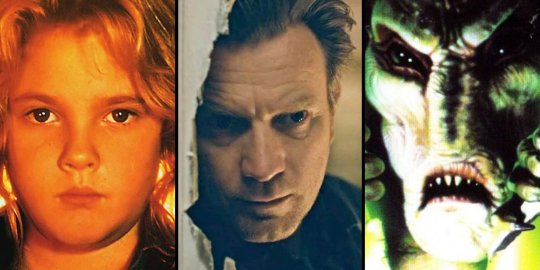
There are a lot of Stephen King movies in development, which isn't surprising considering he's an author who has almost supernaturally mastered the balance of quantity and quality. Starting with IT in 2017, there has been an unofficial Stephen Kingaissance, where adaptations of his novels and short stories aren't nearly as polarizing as they had been in the past.
In the past few years alone, his adaptations have been treated with a deserving level of respect, and to call the results promising is an understatement. Recent adaptations like Gerald's Game, 11.22.63, and the aforementioned IT have found success in theatrical releases, streaming services, and as TV shows, and the well of Stephen King stories is hardly at risk of running dry. Over the next couple of years, there is a long list of movies currently in development based on his work.
Related: Who Is The Better Pennywise: Tim Curry Or Bill Skarsgard?
So, given the high volume of projects that fans of King's work will have to look forward to, it helps to have a digestible understanding of what's coming. Here is a breakdown of every Stephen King movie currently in development.
In the Tall Grass - October 4, 2019

Though Stephen King has written a considerable amount of stories on his own, quite a few of them are the result of collaborations with other writers. And, in 2012, he and his son Joe Hill penned a novella titled In the Tall Grass. Set at an abandoned rest stop, a brother and sister attempt to help a young boy crying from inside a field of tall grass, only to find themselves lost and unable to escape. Directed by Vincenzo Natali (Cube, Splice), In the Tall Grass stars Patrick Wilson, Rachel Wilson, Laysla De Oliveira, and Harrison Gilbertson, and will be released exclusively on Netflix.
Doctor Sleep - November 8, 2019
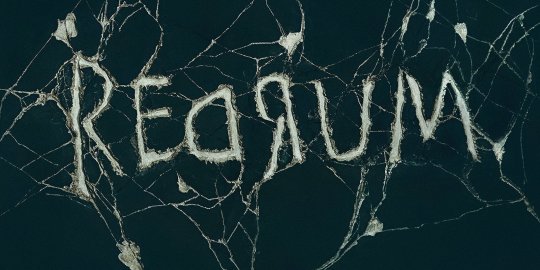
In 1977, Stephen King wrote what has become easily one of his most beloved novels, The Shining. It eventually spawned an adaptation from Stanley Kubrick, which King ultimately wasn't a fan of, and it then took King 36 years to follow up the isolated tale of Jack, Wendy, and Danny Torrance at the haunted Overlook Hotel with its sequel, Doctor Sleep. Now, in the midst of the Kingaissance, Doctor Sleep is getting its own adaptation from director Mike Flanagan (who also directed an adaptation of King's novel Gerald's Game), which stars Ewan McGregor and Rebecca Ferguson.
In Doctor Sleep, Danny Torrance is now an adult who isn't just dealing with alcoholism (like his late father), but with the supernatural traumas he suffered through as a child; and after coming across a tribe of psychic vampires, he finds a purpose in protecting a young girl who shares his psychic ability.
The Tommyknockers - TBA
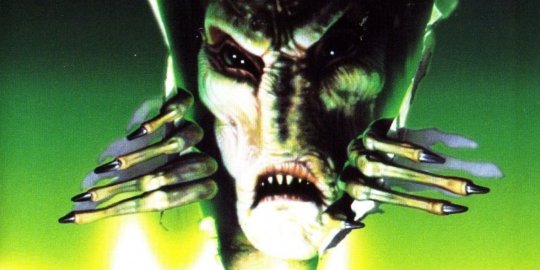
Stephen King's stories are just as much rooted in horror as they are science fiction. And, in The Tommyknockers, the science fiction elements are front and center. This 1987 novel takes place in the fictional town of Haven, Maine, in which the locals become bewitched by a mysterious extraterrestrial artifact that's been unearthed in the woods. In 1993, The Tommyknockers was adapted as a TV miniseries, and now, a feature length adaptation is currently in the works, with James Wan (The Conjuring, Aquaman) attached to produce.
The Talisman - TBA
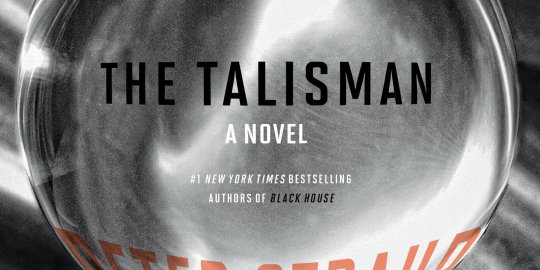
In 1984, Stephen King teamed up with author Peter Straub to write The Talisman, a fantasy novel about a young boy who travels into a parallel world in order to find a magical talisman that might save his dying mother. There is currently an adaptation in the works, courtesy of Steven Spielberg (he's owned the rights to the book since its release, and though he's not directing the movie, his company is producing), but it's been a slow journey getting it made to say the least. Josh Boone (writer/director of both New Mutants and The Fault in Our Stars) was announced to write The Talisman's screenplay in 2017, but Buried's Chris Sparling is now penning a new version. The Handmaid's Tale's Mike Barker will direct the film.
Revival - TBA

Stephen King's stories often revolve around horror and religion, and his 2014 novel Revival is no exception. In fact, one of the two main characters is a priest who not only battles with his faith, but ends up opening a portal to another world. There are very few details surrounding production, aside from the fact that Josh Boone (who was attached to direct not only The Talisman, but King's Lisey's Story and a miniseries adaptation of King's The Stand) will direct, according to Deadline.
Suffer the Little Children - TBA
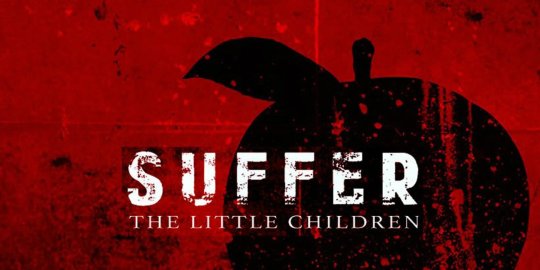
A short story in Stephen King's Nightmares & Dreamscapes, Suffer the Little Children revolves around an elementary school teacher who grows increasingly more suspicious of the children in her class. However, as she attempts to piece together the mystery, people in town begin suffering unexplainable deaths. According to Deadline, newcomer Sean Carter (Keep Watching) will pen the screenplay and direct, though very few other details have been released.
Hearts - TBA
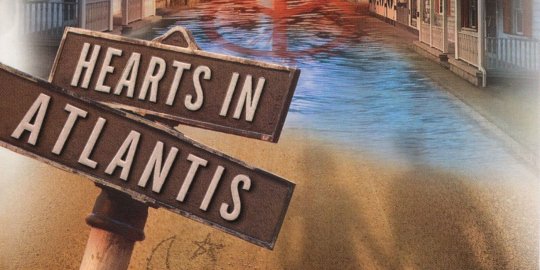
Hearts is a coming-of-age story that revolves around a group of college students in 1966 who are personally affected by the Vietnam War. Johannes Roberts (47 Meters Down, The Strangers: Prey at Night) has been attached to direct since 2016, but there have been few details concerning the project since.
Rose Madder - TBA
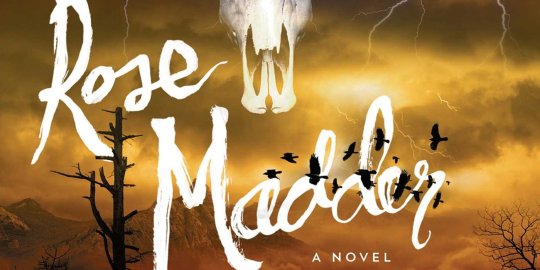
Even though Stephen King's vast collection of work is a well from which most film studios would happily draw, some adaptations struggle getting off the ground. Case in point: Rose Madder. Based on King's novel of the same name, this fantasy thriller dealing with the real-life horror of domestic violence has been in development for years, with screenwriter Naomi Sheridan (In America) once attached to pen the screenplay in 2011. At the moment, however, it resides in Development Hell.
Drunken Fireworks - TBA
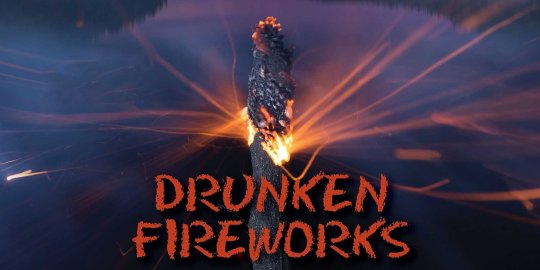
From Stephen King's collection of short stories titled The Bazaar of Bad Dreams is a short story titled Drunken Fireworks. It revolves around the theme of new money and old money, in which a fireworks competition results in some unexpectedly heavy consequences. James Franco is attached to star in the adaptation, according to Variety, and will also double as a producer. The screenplay is being penned by Matt Rager, who also wrote As I Lay Dying, The Sound and the Fury, and In Dubious Battle, in which Franco also starred and directed. There is currently no release date set for the movie.
Firestarter - TBA
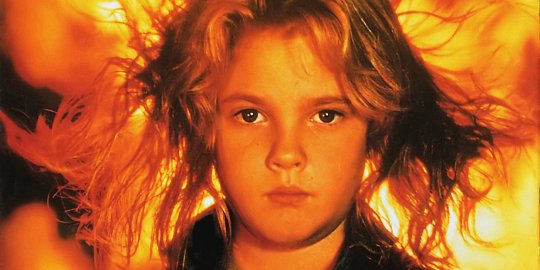
In 1984, a very young Drew Barrymore starred in an adaptation of Stephen King's sci-fi horror novel Firestarter. She played a young girl named Charlie who is born with a unique gift allowing her to start fires with her mind, which ultimately prompts a government organization known as The Shop to hunt her down. Now, Blumhouse Productions and Universal Pictures are moving forward with an updated take on the story, and though it's still in the very early stages of pre-production, The Edge of Heaven's Fatih Akin is attached to direct, while Scott Teems (Narcos: Mexico) will pen the screenplay.
The Jaunt - TBA

Another Stephen King adaptation currently in development is based on the short story titled The Jaunt. First published back in 1981 in The Twilight Zone Magazine, The Jaunt later become an entry in King's collection of short stories, Skeleton Crew, telling a futuristic story about people who can teleport, and the potential horrors that come with it. In 2015, it was announced that Andy Muschietti, who has since gone on to direct both IT and IT: Chapter Two, would direct, but that doesn't appear to be the case anymore.
'Salem's Lot - TBA
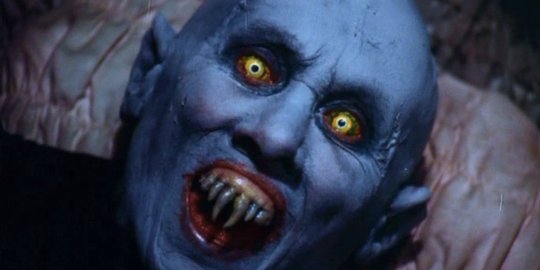
Salem's Lot is one of Stephen King's most iconic stories, and it's finally being adapted for the big screen, after previously being adapted twice as a TV series in 1979 and 2004. Annabelle and The Conjuring producers and directors James Wan and Gary Dauberman are producing the film. Dauberman wrote the scripts for both IT and IT Chapter Two, so he's at least familiar with King's style and has been able to turn those stories into blockbuster successes.
Lisey's Story - TV Series
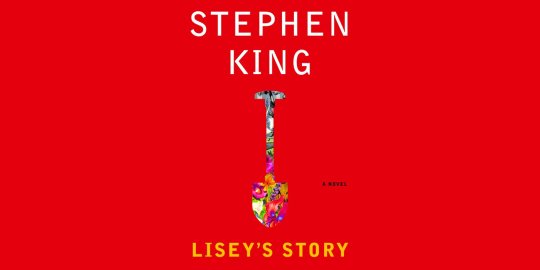
Lisey's Story is a 2006 horror-romance novel from Stephen King centers around the titular Lisey who's dealing with the death of her husband. However, in dealing with her husband's death, she ends up entering a dark world in which her husband frequented when he was still alive. Although originally envisioned as a movie, Lisey's Story is now being adapted for television. Stephen King himself is writing the scripts for all eight episodes, which will be produced by J.J. Abrams' Bad Robot for Apple TV+, starring Julianne Moore as the eponymous Lisey.
The Stand - TV Series 2019
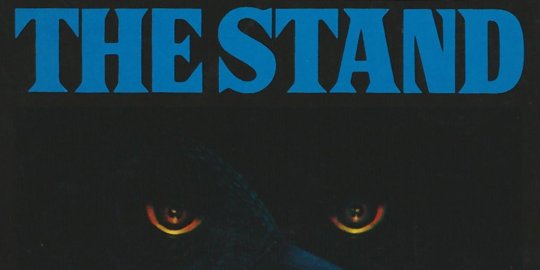
One of the most significant upcoming adaptations of Stephen King's work won't be a movie at all, but a TV limited series. The Stand, which was adapted into a miniseries in 1994, will get the TV treatment yet again, courtesy of CBS All Access. The Stand is an epic story centering around certain individuals who survive a superflu that wipes out most of the population, and Josh Boone - who already has his hands full with other Stephen King projects - is attached to direct. The Stand has reportedly cast James Marsden (Stu Redman), Amber Heard (Nadine Cross), Whoopi Goldberg (Mother Abigail), Greg Kinnear (Glen Bateman), Odessa Young (Frannie Goldsmith), Henry Zaga (Nick Andros), and Marilyn Manson in the lead roles, with King himself writing a new, canon ending for the 10-hour series.
Next: Stephen King Stories Set In Derry (Besides IT)
source https://screenrant.com/stephen-king-movies-upcoming-development/
0 notes
Link
My experience with "It" has been a bit of a roller coaster. My dad's a big Stephen King fan, and I know the book was around the house when I was a kid, but I didn't see the TV miniseries until sometime in the last couple of years (and perhaps consequently, never had a fear of clowns). I only started digging into King's novels with 'Salem's Lot a year or two ago, so my knowledge of the story was limited to that miniseries and a lot of jokes about a child orgy scene. So I went into the audiobook expecting that I wouldn't really like it, and I was pleasantly surprised. Meanwhile, I went into the new film with high hopes and high expectations��a far cry from where I was a week or two before. I mentioned on Twitter that I thought the new version of Pennywise fell into the same trap that so much modern horror falls into, making every monster scary in and of itself, rather than having the horror come from placing this common thing in a scary context. In short, it looked a bit like Rob Zombie's Pennywise, and I thought that was an emblematic error. But reviews have been largely positive, and from people I generally respect with regard to horror movies, so I figured I was wrong. I went into "It" expecting to be wowed. I wasn't. Or, well, I guess I was, but only at the breadth and depth of wasted opportunities. Spoilers ahead for "It" (2017), and "It" (1990) and It (1986), I suppose, as well.
The most common critique I've heard since watching "It" is that it isn't actually all that scary, and I think that's accurate. The thing is, I don't know how much of a problem that really is. The story isn't all that scary, either. Not in the conventional horror movie sense, anyway. There's a lot of dread and cosmic horror in places, but surprisingly little death and gore and suspense for a movie about a killer clown monster—and what there is isn't central enough to the plot to be likely to make it through the cuts necessary to bring the story down to movie-length. The horror moments that made the cut relied mostly on jump scares and Bill Skarsgård's acting chops for their effectiveness. I'm usually kind of a soft touch when it comes to jump scares, and maybe they would have been more effective if I hadn't heard ahead of seeing it that the movie was non-stop jump scares (which isn't exactly accurate). Whatever the reason, I wasn't actually scared by anything in the movie, and I thought the only scene that was effectively scary was when the kids were watching the slide projector. There are several things about the movie that worked really well. For one thing, the production values are great, especially in contrast to the 1990 version, which looked every bit the TV miniseries that it was. I was worried that the story wouldn't work updated so that the flashback sections were in the 1980s, but that turned out to be a stroke of marketing genius, if nothing else. There is, perhaps, no better time to release a 1980s-nostalgic horror film about children fighting an otherworldly evil that stole one of their friends than in between seasons of "Stranger Things." The biggest change to the overall plot was shifting the focus from murdered children to missing ones, tying in with the stranger danger/kid on the milk carton concern of the time. The kids were great, particularly Sophia Lillis (Bev), who should, if there's any justice in Hollywood, have an amazing career ahead of her. I think the only misstep in casting for the children was Nicholas Hamilton, whose small size and weaselly looks never quite gave Henry Bowers the sense of real menace that he's supposed to have. I never quite bought Jaeden (Bill) Lieberher's stutter, but I attribute that less to his performance and more to how lightly it was used in the movie, and how natural Steven Weber's stutter sounded in the audiobook. I really don't want this to be just a list of things the movie did differently from the book; for one thing, that's inevitable, because the book is an enormous tome that builds the lore of Derry going back a hundred years, bounces back and forth between two main time periods, features a pretty large cast of characters, and has a climactic moment where a bunch of ten-year-olds have sex in a sewer (in a scene that, were it written today, would hopefully be less heteronormative if not less creepy). I understand departing from the book, but there are ways to do that well, and then there's the ways that "It" chose. And the first, most significant of those changes is in how it treats Beverly Marsh. Bev in the books is not a great character. She is almost entirely defined by her relationships to the boys and men in her life, from her abusive father to her abusive husband to the boy who has a crush on her to the boy she has a crush on to the five other boys she has sex with in a desperate attempt to rebuild a cosmic bond at a critical moment. She doesn't have a whole lot of agency to begin with, but what she does have is skill and perseverance. She's the one who knows yo-yo tricks. She's the one who's best with Bill's slingshot, who actually manages to wound It. She takes down her father when It pushes him over the edge. She keeps her cool when they're trapped in the sewers coming back from It's lair. And she sacrifices the most to make it back as an adult. She doesn't really get those moments in the movie. She gets to stand up to her father (whose abuse in the film is never as physical as it is in the book, but is much more heavily implied to be sexual), but the rest goes away, and even that feels less significant since there's so little buildup and no indication that her father isn't just acting on his own. The slingshot is gone, replaced instead by Mike Hanlon's slaughterhouse bolt pistol. So Bev doesn't get the moment of wounding It, a fact made more significant by the way the movie compresses that scene into the climax. She does get to go swimming in her underwear, so at least she still gets to be objectified by all her male friends and family. The novel gives Bev fairly little agency to begin with, but I suppose there's no amount of female characterization too small that Hollywood can't shrink it a little more. So, with the slingshot replaced by Mike's bolt pistol, you might expect that that would expand his role a bit. Indeed, Mike gets the biggest changes from book to film, and the clearest narrative arc. In the book, Mike is a farm kid from the other side of Derry, where the black families live, and he goes to a Christian school. His relationship with his father (and his father's relationship to the town) is one of only two really positive parent-child relationships in the book, and it informs a lot about Mike's character, including his interest in town history that leads him to be the researcher and the one who stays behind when they all grow up. It's his father's history with Henry Bowers' racist father that drives Henry's targeting of Mike. The book loses all of that, killing Mike's parents in a fire, and making him work the farm with his hard-nosed grandpa. Early on, Mike can't bring himself to kill sheep with the bolt pistol, and it's implied that he's a vegetarian. After the group experiences horrors and has an act-two falling-out, he's able to kill much more coldly. So the closure to that narrative arc is obvious: he gets to use the bolt pistol on It, striking the killing blow. But he doesn't. That moment goes to Bill. So, if you're following along at home, they gave Bill's slingshot to Mike, removed Bev from that aspect of the story entirely, changed the narrative so that Mike's character arc would end most naturally with using that weapon to kill It, and then gave that moment to Bill. They broke two characters with one change. And all the research and history that define Mike's character? Those go to Ben instead, who's now also the new kid in town (presumably to fuel the New Kids on the Block gags, which are genuinely funny). I'm not sure if all that is meant also to code Ben as queer, but it's easy to read that into the story as presented. Just as it was easy to read queer coding of Mike in the book. Again, it wasn't at all explicit or even clear (and was, at least in part, a result of me mishearing "vags," short for "vagrants," as something else), but I caught that Mike was gay before I caught that he was black. Speaking of which, racism is one of the more mundane horrors in the book, but one that was pretty omnipresent, especially in the 1950s sequences. Not so in the movie. When Henry and his cronies attack Mike, they tell him "get out of my town!" but we never get any indication why they say that (especially when it would make more sense to be shouted at Ben, the new kid in town), certainly not the explicit racism that's in the book. Neither do we get the personal connection of Henry killing Mike's dog. That moment shows up here, but it's Henry saying "I wish I'd killed your family!" Between this and the fact that they made Henry's father an abusive police officer rather than a washed-up farmer with serious psychoses, it seems like some earlier draft of the film might have leaned heavier on the racism angle, might have been trying to say something, probably had Henry starting the fire that killed Mike's parents, but none of that made it to the screen. What we got instead was entirely flattened. Everything that defines Mike's character in the book is stripped away and either sanitized or given to other characters, and so is a good portion of what would make sense to define his character in the movie. It's a mess. The only character who benefits at all from changes between the book and movie is Stan Uris, and that's arguable. Stanley's first act in the book is to commit suicide as an adult, so the book never really lingers on his character in the flashbacks. We get little bits of his personality and a decent amount on his interest in birds, but that's pretty much it. Here, his Jewish heritage is emphasized with a plotline about his Bar Mitzvah, and that could be really interesting. In particular, it'd make an interesting contrast with the plot about Bev's period, both stories about kids struggling with becoming adults. That contrast is never actually made, though, and Stan's encounter with It loses the moment of triumph. Again, what's distinct about Stan's character gets stripped away. Also, like Mike, we never see Stan encounter any bigotry. Derry has monsters, murderers, rapists, and hooligans, but no anti-Semites. That stripping of characters' unique qualities is almost universal, and weirdly consistent in that we never see the kids' weapons against It. In the book, the power of belief makes Bill's speech therapy mantra, Stan's bird book, Eddie's aspirator, Bev's silver slingshot slugs, and Richie's voices into potent weapons that hurt It at key moments, but none of those show up here. As a result, we never really get an idea why the kids are able to defeat Pennywise. For some reason, they're able to beat up the clown and then kill it with an empty bolt pistol, but there's nothing to contextualize those moments. And there's a lot of that out-of-context stuff, little bits left over from the book that don't work because the context was cut out. Why does a thirteen-year-old in 1989 shout "hi-yo Silver, away!" while riding his bike? What's with the references to the Turtle if we're not going to go cosmic with it? Why does Pennywise turn into a mummy at one point near the end, when we've never had mummies even mentioned in the film up to that point? Why do the kids say "beep beep" to Richie? Why does Eddie encounter a "leper" in 1989—especially after talking early on about his fears over AIDS (another moment where it seemed like maybe an earlier draft had something to say)? Why have the big Paul Bunyan statue if you're not going to bring it to life? They even removed Georgie's question about balloons, the line that contextualizes every comment about things floating in the rest of the movie. And then there's Pennywise, who just did nothing for me. I talked before about how I think it's less effective to make him outwardly creepy from jump, and nothing in the movie dissuaded me from that. When Skarsgård is meant to be a normal clown, he's too creepy, and when he's meant to be scary, he's not creepy enough. There's none of the juxtaposition that made Tim Curry's version of the character so effective, and while anyone's going to suffer in comparison to Curry, Skarsgård was hamstrung from the start by the bizarre choices they made in Pennywise's design and mannerisms. He frequently talked too fast, which swallowed up his dialogue on more than one occasion, and the film often gave him those herky-jerky movements that have been popular in monsters since "The Ring," but here they always just looked goofy. They further served to make Pennywise less distinct as a horror movie monster; here he's just another Samara or Annabelle, a creepy monster who talks and moves in a creepy way and never surprises you when it turns out he's creepy. A similar thing happens with the rest of the adult characters. We lose Richie and Mike's parents entirely. Bill's dad is hostile to Bill, having accepted Georgie's death in a way that Bill hasn't. Eddie's overbearing mother becomes even more cartoonish. Even Bev's passive-but-enabling mom is gone, leaving us only with sinister and hostile adults throughout the story. There's probably a lesson in there, but it means we don't get the creeping horror of the kids realizing they're alone in their fight, that It has isolated them by making the adults oblivious or by feeding their basest impulses. When Bev's dad gets slightly more physical in his abuse, it's the next logical step for his character, not a sudden disinhibition of what was kept slightly beneath the surface. By removing the juxtaposition and mingling of mundane and cosmic horrors, by removing the contrasts that make the horror function, the story—and the horror—is diminished. And that's my overall impression of the movie, really. It's diminished. Everything feels smaller. The stakes are smaller, the real-world horrors are smaller, the methods they use to fight the monster are smaller. Everything that made the story distinct has been stripped away for one reason or another, leaving a mess of a story that feels like it's coming out of half a dozen different script revisions and focus group decisions. Instead of a story about children caught in an ancient war against a Lovecraftian cosmic horror, it's The Goonies vs. Freddy Krueger. That's a fine pitch, but it's not It.
0 notes